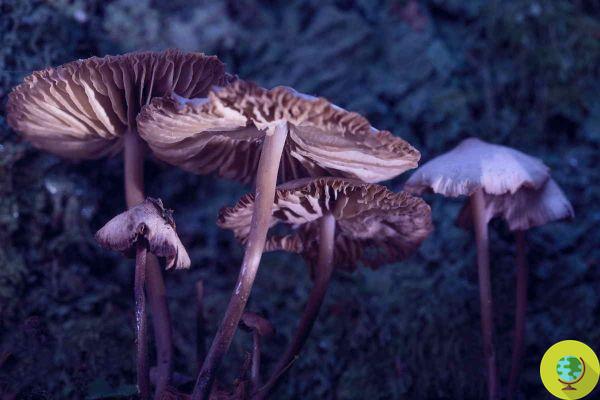
A new study highlights the use of psychedelic compounds, finding that two doses of psilocybin reduce symptoms of depression.
Don't store avocado like this: it's dangerousEffects of fungi still related to depression. Another study again emphasizes the use of psychedelic compounds as medicine, finding that two doses of psilocybin, the compound that gives "magic mushrooms" their characteristic, significantly reduce symptoms of major depression in adults when combined with assisted psychotherapy.
This is the result that emerges from a survey conducted by researchers from the Center for Psychedelic and Consciousness Research (CPCR) of the Johns Hopkins School of Medicine, who analyzed 24 adults in two sessions of five-hour psilocybin therapy and 24 weeks of follow-up. up, focusing - in fact - on major depressive disorder, that mood disorder characterized by sadness deep and constant.
"The magnitude of the effect we saw was about four times greater than what clinical studies have shown for traditional antidepressants on the market," says Alan Davis, Ph.D., professor of psychiatry and behavioral sciences.
A systematic review
According to data from the US Centers for Disease Control (CDC), tens of millions of adults have suffered from chronic anxiety disorder at some point in their lives. One in 6 will have depressive symptoms during some period of their life.
Our study in @JAMAPsych shows #psilocybin-assisted therapy reduced #depression symptoms in people with moderate-severe depression. 1 month later, 71% had a clinically significant response & 54% no longer met criteria for depression https://t.co/7hDkt5WIDN pic.twitter.com/ewGRDNbrII
— Johns Hopkins Psychedelic Research Center (@JHPsychedelics) November 4, 2020
In this new study, the researchers looked to see if the psilocybin (which is already known as "Breakthrough therapy" - literally "breakthrough therapy" - that is that particular designation of "revolutionary therapy" that comes directly from the FDA and concerning hallucinogenic mushrooms as a therapy for depression resistant to the most common treatments), may be effective enough to be used as treatment for "standard" depressive disorders, long-term, persistent and less defined.
Hallucinogenic mushrooms, the "breakthrough" therapy for depression according to the FDA
"Because there are different types of depressive disorders that can cause variations in how people respond to treatment, I was surprised that most of the study participants found psilocybin treatment effective," says Roland Griffiths Ph.D ., Director of the CPCR and a pioneer of psychedelic treatment research who published his findings in JAMA Psychiatry.
In the clinical trial, of the group of 24 participants, 67% showed one more than 50% reduction in depression symptoms at one week follow-up and 71% at four-week follow-up. Overall, four weeks after treatment, 54% of the participants were considered to be in remission, meaning they no longer qualified as depressed.
"Since most other treatments for major depression take weeks or months to work and can have side effects, this could be a game changer if these results hold up in future placebo-controlled trials," Davis concludes.
The researchers say they will follow participants for a year after the study to see how long the antidepressant effects of psilocybin treatment remain and report their findings in a later publication.
Font: JHP / JAMA Psychiatry
Read also:
- Hallucinogenic mushrooms: psilocybin to fight depression? The new study
- Magic Mushrooms: One dose of psilobycin is enough to become uninhibited and help depression
- Magic mushrooms: mushrooms to expand the mind and treat depression?


























